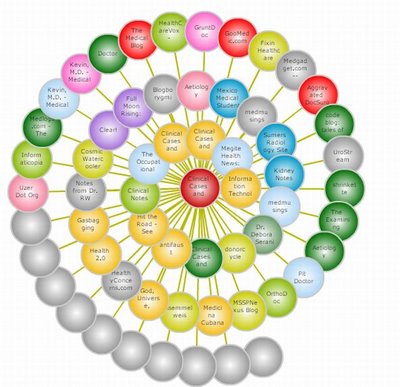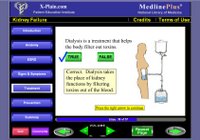 A podcast
A podcast is a downloadable audio file that you can subscribe to and get regular updates when a new episode is released (usually weekly). Almost all podcasts are free and the best way to use them is via
Apple's iTunes/iPod.
There is not a single doctor I know who is not busy. Listening to podcasts takes time -- 15-30 minutes per episode for most of them. Obviously, you have to prioritize which one to listen to unless you want to spend the whole day with your iPod on.
I subscribe to about 40-50 podcasts in iTunes but I rarely have time to listen to more than 4-5 per week.
Here is the list of the
Top 5 Podcasts I Listen To:
1. ACC Conversations with ExpertsAmerican College of Cardiology
Conversations with Experts is probably the most useful podcast for medical professionals at the moment. Dr. Hutter has 2-3 guests on each session which makes it lively and refreshing to listen to. In contrast, the NEJM 15-minute podcast, recorded with a single monotonous voice, is a sure recipe for sleep.
2. Johns Hopkins Medicine podcastSimilarly to
ACC Conversations, this podcast benefits from having two speakers. One of them is Rick Lange, the Johns Hopkins chief of medicine who looks behind the medical headlines of the week.
Cleveland Clinic also has a weekly podcast
but it focused primarily on patient education rather than on informing medical professionals.
3. JAMA Audio CommentaryCatherine DeAngelis, Editor-in-Chief of JAMA, summarizes and comments on each issue of the journal. This podcast is easier to listen to than the one by the NEJM because the editor can undoubtedly explain better why she chose a particular article for publication and why we should take the time to read it. Dr. DeAngelis ends every podcast commenting on the windy weather in Chicago and how the patients are their top priority there. I cannot really see the connection between the two but she obviously likes this finale.
4. NEJM This Week podcastThe NEJM podcast is not bad but not great either. As I mentioned before, its biggest drawback is the monotonous voice of a single reader (male or female depending on the episode) and the fact that they often provide just "teases" for the articles rather than telling the listeners what is the story really about. This is especially annoying with the case reports from the Mass General Hospital.
ACC Conversations with its in-dept analysis is much better in terms of both education and entertainment. There is nothing wrong if the education is entertaining at the same time, isn't it?
5.
Annals of Internal MedicineThe
Annals of Internal Medicine was the latest member of the "Big Five" of general medical journals to
launch a podcast. The other four -- NEJM, JAMA, BJM and Lancet -- have been experimenting with portable audio for a while now.
NPR podcasts are also great but I just don't have time to listen to them regularly.
Among the
video podcasts, the top 5 that I like best are:
1.
ABC World News2. JAMA News Release (available from iTunes)
3.
CNN video podcasts4.
National Geographic5.
RocketboomThe easiest way to subscribe to the podcasts/videocasts above is to download iTunes, then go to the podcast section and search for "JAMA", NEJM", "ACC", etc. Once you find a podcast you like, click the "subscribe" button.
Apple really has a lock on the podcast/videocast market for now with iTunes/iPod. I doubt that Microsoft can make a meaningful move in this arena soon. Google is spread too thin in too many areas and this leaves Apple in the position of a dominant force in the market of portable audio/video for now.
Related:
Podcasts and Videocasts. UBC Health Library Wiki.
Podcasts and vodcasts in medicine. Dean Giustini (PDF)
Medical podcasts: the future of continuing professional development? BMJ Career Focus 2008;336:29-30.
Medical journals that use social media (spreadsheet).
Body in Mind, 2011.
Google ranks the top 100 journals and NEJM is no more the "top dog" according to G Scholar Metrics for Publications
http://goo.gl/unTjs
 The 8 clinical cases below illustrate specific teaching points in the preoperative care of patients with chronic kidney disease. We will try to incorporate more case-based modules in the Cleveland Clinic Perioperative Medicine Summit next year. The 2006 Summit starts on September 18.
The 8 clinical cases below illustrate specific teaching points in the preoperative care of patients with chronic kidney disease. We will try to incorporate more case-based modules in the Cleveland Clinic Perioperative Medicine Summit next year. The 2006 Summit starts on September 18.

















